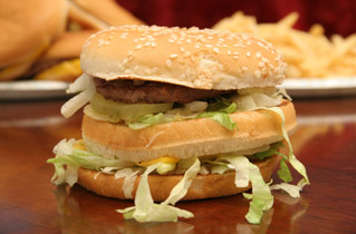
Some foods can be a higher risk for people with a weakened immune system because of:
- how the foods are produced
- where the foods are stored
- how long the foods are stored.
Replacing risky foods with safer alternatives will help you minimize your chances of contracting a foodborne illness.
| Types of food | Food to avoid | Safer alternatives |
|---|---|---|
| Deli meats | Non-dried deli meats such as bologna, roast beef and turkey breast |
|
| Dairy products | Raw or unpasteurized dairy products, including soft and semi-soft cheese such as Brie, Camembert and blue-veined cheese |
|
| Hot dogs | Hot dogs straight from the package without further heating |
|
| Pâtés and meat spreads | Refrigerated pates and meat spreads |
|
| Eggs and egg products | Raw or lightly cooked eggs or egg products, including salad dressings, cookie dough or cake batter, sauces and drinks such as homemade eggnog |
Homemade eggnog must be heated to 71⁰C (160⁰F). |
| Seafood | Raw oysters, clams and mussels |
|
| Raw seafood such as sushi |
| |
| Refrigerated smoked seafood |
| |
| Meat and poultry | Raw or undercooked meat or poultry such as steak tartare |
|
| Fruit juice and cider | Unpasteurized fruit juice and cider |
|
| Sprouts | Raw sprouts such as alfalfa, clover radish and mung beans |
|
| Honey | Raw or unpasteurized honey |
|
*Many of these foods are high in sodium, fat and calories and are not always a more nutritious choice. Speak to the dietitian on your transplant team about choosing
healthy safe alternatives.
References
Canadian Food Inspection Agency & Health Canada, 2010. Safe Food Handling for People with Weakened Immune Systems. Health Canada: Ottawa






